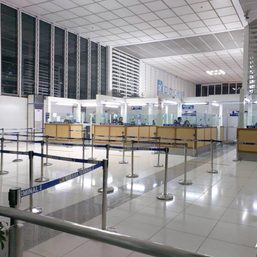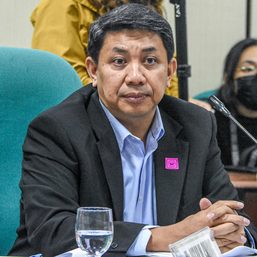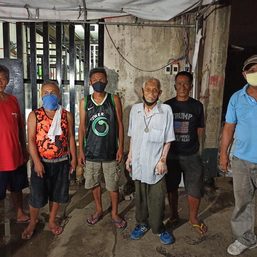SUMMARY
This is AI generated summarization, which may have errors. For context, always refer to the full article.
In a significant ruling of 3 justices, the Court of Appeals (CA) reversed an earlier decision and ordered the security officials of the Duterte government to show the basis for including Leyte 3rd District Representative Vicente Veloso in their so-called narco list.
“The Court’s earlier decision to remand is set aside. The respondents are directed to produce and submit directly to the Court all data, information, documents, or records, duly sealed, regarding the person of the petitioner that have to do with the information collection efforts and actions undertaken that led to his inclusion in the narco list,” the CA’s former special 8th division said in a decision promulgated on Monday, October 5.
Veloso first filed for a petition for the writ of habeas data, the privileges of which would be an order for the Duterte government to remove him from the list.
The CA in November 2019 junked the petition, saying that the administrative complaint subsequently filed against Veloso before the Office of the Ombudsman also meant he has lost his right to avail of habeas data remedies.
As scrutiny mounts over the roles courts play in these protective remedies, CA Justices Apolinario Bruselas, Germano Francisco Legaspi, and Ruben Reynaldo Roxas partially considered Veloso’s appeal and made the decision. (READ: Zara Alvarez asked for protection, but she died before the court could give it)
Not a matter of national security
Two months before the May 2019 elections, Duterte released a new list of politicians allegedly linked to the illegal drug trade, which included his ally, Veloso. The Department of the Interior and Local Government (DILG) eventually got around to filing an administrative complaint against Veloso.
But the CA noticed that even the administrative complaint did not detail the evidence against Veloso.
“The complaint filed before the Ombudsman did not even include any of the information that the respondents gathered which led them to file the administrative charge against the petitioner. The one-paragraph allegation against the petitioner is bereft of any supporting affidavit,” the CA said in its 42-page decision.
CA said Veloso has proven that this case involves a matter of right to informational privacy as the lawmaker cannot attempt to dispute the allegation before the Ombudsman “because the case remains stagnant.”
The security cluster of the government – the DILG, the police, military, Philippine Drug Enforcement Agency (PDEA), and the National Intelligence Coordinating Agency (NICA) – tried to invoke national security to try to avoid submitting proof to the court.
“They argue that the information that the petitioner seeks involves the government’s war on drugs, which are matters of national security and concerns law enforcement as well as protection of public safety,” the CA said.
The CA did not agree and cited the Supreme Court in the still pending petitions against the Duterte government’s war on drugs.
Unabashed deference to the executive department would undermine the structural checks and balances scheme central to the constitutional separation of powers amongst the three branches of government.
Court of Appeals Former Special 8th Division
In those petitions, the Office of the Solicitor General initially refused to turn over to the High Court police reports on drug-related deaths because they would risk national security, but SC justices overruled the OSG.
“Denying judicial relief based on mere assertion that the matter involves national security and state secrets, permits, if not encourages, state agents to ignore legal norms since they expect to be free from accountability for their conduct,” said the CA.
Check and balance
The Duterte government’s executive power has been questioned repeatedly before courts, and the CA addressed that in this case, saying that they do not “seek to nullify the executive’s discretion in investigating crimes and in determining what constitutes privileged information.”
“The Court merely acknowledges that in the context of an individual’s right to privacy vis-a-vis constitutional guarantees, a wide interpretation of authority and secrecy afforded to government would ultimately result to a diminished degree of transparency – something inimical to the norms in a democratic society,” said the CA.
“Unabashed deference to the executive department would undermine the structural checks and balances scheme central to the constitutional separation of powers amongst the three branches of government,” the justices added.
Speaking forcefully on upholding constitutional rights, the CA said: “That a man may be denied his rights at the mere whim of government, is anathema to a democracy, if the ideal that indeed freedom prevails in our land is to be upheld.” – Rappler.com
Add a comment
How does this make you feel?








There are no comments yet. Add your comment to start the conversation.